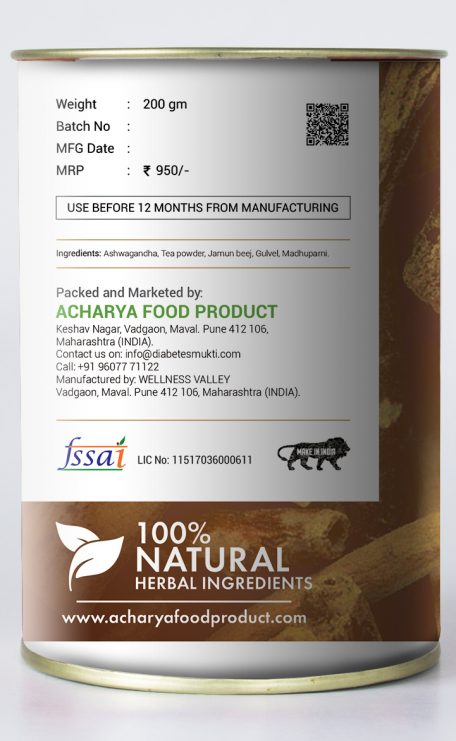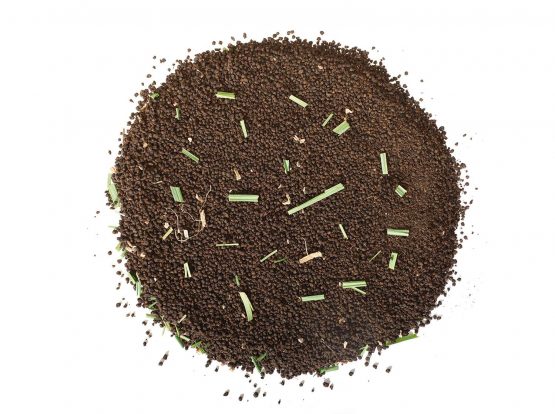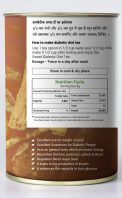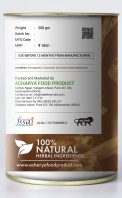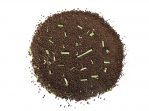No products in the cart.
Benefits of Ashwagandha Tea
While the ashwagandha herb is commonly used in Ayurveda, there is no scientific consensus on the health benefits of the tea or herb. Alternative medicine has focused on the use of the ashwagandha root in making tea and supplements. While the root can be found in health food stores in the United States as a supplement, research on its actual benefits are scarce. Here is a round-up of some of the available research on ashwagandha and its potential benefits.
1. Blood Sugar
Some research shows that ashwagandha may help reduce blood sugar levels. An initial lab study published in Phytochemistry showed that ashwagandha helped to increase glucose uptake and insulin sensitivity—something that may benefit individuals with diabetes (1).
A human study involving researchers from India and Vermont showed that ashwagandha helped to improve fasting glucose in 130 subjects who were monitored for 60 days compared to a placebo (2). Additional research published in the Indian Journal of Experimental Biology found that ashwagandha helped to lower blood sugar levels as effectively as an oral hypoglycemic drug (3). It’s important to note that these studies were small and larger studies are needed to confirm these effects and the mechanisms behind them.
2. Cancer
Some small studies have shown that ashwagandha may aid in the treatment of cancer. None of these studies have examined the effectiveness of ashwagandha as a stand-alone treatment. A study published in the AAPS Journal found that a crystalline steroidal compound in ashwagandha leaves may have cancer-fighting properties. The compound—withaferin A—was shown to protect against chemically induced cancers in experimental rodents (4).
A second study published in PLoS One found that withaferin A was effective against chemo-resistant cancer stem cells in mice. The researchers discovered that a combination of the compound and cisplatin resulted in significant elimination of ovarian cancer cells. These compounds were shown to naturally kill cells (5)
These anti-cancer benefits were shown in animal models and may not translate to human cancer treatment. More research is needed to establish a consensus.
3. Stress
One of the main uses of this Ayurvedic herb is as a stress-reliever. That’s because some research shows that ashwagandha may help to reduce cortisol levels—the human stress hormone.
A human study published in original research examined the impacts of ashwagandha on stress levels. The research consisted of 98 individuals with chronic stress who were given ashwagandha or a placebo for 60 days. Researchers found that individuals who took ashwagandha had significantly lower levels of cortisol (2).
A second study published in the Indian Journal of Psychological Medicine examined the effects of ashwagandha on anxiety and stress. The randomized double-blind, placebo-controlled study consisted of 64 individuals. The participants received either 300 milligrams of ashwagandha root extract or a placebo. Participants who took ashwagandha powder in capsules reported a significant decrease in stress levels and also demonstrated lower serum cortisol levels. The researchers believe ashwagandha works on the nervous system to help alleviate anxiety disorders (6).
4. Fertility
Ashwagandha may offer benefits for infertile men or men who want to boost their fertility. In fact, organic ashwagandha root powder has long been used in alternative medicine for male fertility.
A study published in Fertility and Sterility investigated the impact of ashwagandha on fertility. The prospective study conducted in India consisted of 75 normal healthy fertile men and 75 men who were receiving fertility screening. Researchers found that the use of ashwagandha increased sperm count and sperm quality. The results showed that ashwagandha extract helped to reduce oxidative stress and improve markers of good testosterone levels (7). Researchers believe ashwagandha may help to increase thyroid hormone levels resulting in better fertility. As with these other health benefits, more research is needed to prove these benefits.
4. Inflammation
Like many herbal teas, ashwagandha tea may help to reduce inflammation. The root contains anti-inflammatory properties that can protect overall health (8).
Inflammation has been shown to naturally relax blood vessels, which can help lower blood pressure and cholesterol levels to protect heart health (9). Reductions in inflammation may also boost the immune system by increasing natural killer cells known as white blood cells (10).




